
Nara Monkam
Associate Professor of Public Economics, Chair in Municipal Finance within the Department of Economics, and Head of the Public Policy Hub at the University of Pretoria, University of Pretoria
Less ![]()

Narcisa Pricope
Professor of Geography and Land Systems Science and Associate Vice President for Research, Mississippi State University
Less ![]()

Nareg Seferian
Ph.D. Candidate, School of Public and International Affairs, Virginia Tech
Nareg Seferian defended his dissertation at the School of Public and International Affairs, Virginia Tech in February, 2023. His doctoral research focussed on the province of Siunik in southern Armenia, using it as a case in investigating changes in geographical imaginations and the geopolitical culture of the country following the Second Karabakh War of 2020. From 2013 to 2016, he served on the faculty at the American University of Armenia. Nareg Seferian has conducted research, run courses, and delivered talks in Armenia, Turkey, Austria, and the United States. He holds a master's in international affairs from the Fletcher School of Law and Diplomacy at Tufts University and the Diplomatic Academy of Vienna and a bachelor's in classical liberal arts from St. John's College in Santa Fe, New Mexico. His published writings are available at naregseferian.com.
Less ![]()
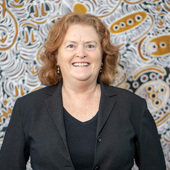

Narelle Hopkin (Towie)
Academic chair of journalism, Murdoch University
Narelle is a journalism lecturer and investigative journalist who has worked for leading news websites and newspapers. Her two-decade journalistic career began at Nature Magazine and she have worked across a range of media in TV news, online and print.
As Academic Chair of journalism at Murdoch University, Narelle runs the course across two countries and has been awarded a Fellowship with the Higher Education Academy.
As a freelance reporter, Narelle regularly reports on breaking WA news in politics, courts, health and police for publications, such as The Guardian. She specialises in environment, science and social equity issues and has investigated asbestos contamination in Wittenoom, groundwater mining, live export and state homelessness.
Less ![]()
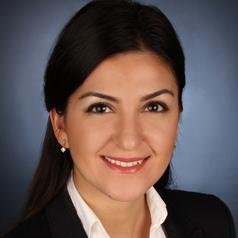
Nargiz Travis
Project Director, Cancer Prevention and Control Program, Lombardi Comprehensive Cancer Center, Georgetown University
I hold a master’s degree in Public Health with a focus on Epidemiology from Freie University Berlin, Germany. I have over nine years of research experience in cardiovascular epidemiology and healthcare research, with main research areas in the epidemiology of chronic cardiovascular diseases, risk prediction algorithms, health promotion and interventions, health outcomes and health systems research, quality and efficiency in healthcare, and health technology assessment. I joined the Tobacco Regulatory Science field four years ago as a Project Director at the Department of Oncology at Georgetown University managing multiple federally-funded multi-site research projects. My research areas include health effects and use patterns of novel nicotine delivery systems with a focus on the use of simulation modeling for regulatory science. My research focuses on developing data inputs for state and federal policy simulation models by conducting systematic literature reviews, meta-analyses, and expert panels. My work intends to provide evidence to inform federal and policy decision-making.
Less ![]()
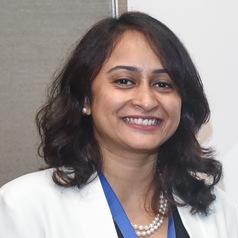
Narmin Tartila Banu
PhD Candidate, Marketing, Carleton University
I worked for 5 years in brand management at Reckitt Benckiser, and 3 years as a Consultant in SAP. Currently I'm pursuing a PhD in Marketing at the Sprott School of Business, Carleton University.
Less ![]()
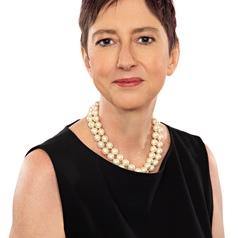
Narnia Bohler-Muller
Divisional Executive, Developmental, Capable and Ethical State research division, Human Sciences Research Council
Professor Narnia Bohler-Muller holds the degrees of BJuris LLB LLM (UPE) LLD (UP). Previously she was Professor of law at Vista University and Nelson Mandela Metropolitan University (NMMU) before joining Africa Institute of South Africa (AISA) as research director of social sciences in 2011.
Currently Prof Bohler-Muller is Divisional Executive of the Developmental, Capable and Ethical State research division at the HSRC. a former Adjunct Professor of the Nelson R Mandela School of Law at the University of Fort Hare and a Research Fellow at the Centre for Gender and Africa Studies at the University of the Free State.
Prof. Bohler-Muller has over 100 peer reviewed publications and has co-edited five books on gender violence; human trafficking, the dynamic of BRICS, the evolution of the Constitution and the Blue Economy. She is an admitted Advocate of the High Court of the Republic of South Africa and served as presiding officer for the Private Security Industry Regulatory Authority (PSIRA) in Port Elizabeth for 7 years. Amongst others she has completed research consultancy work for the Department of Justice and Constitutional Development on HIV/AIDS, human rights and access to justice; and the Institute for Child Witness Research and Training on gender-based violence.
She has completed research fellowships at Griffith University?s law faculty in Brisbane, Australia; Birkbeck School of Law in London, UK; and the BRICS Policy Centre in Rio de Janeiro, Brazil. Prof Bohler-Muller represents South Africa as the head of the Indian Ocean Rim Association (IORA) Academic Group.
Her research interests include international and constitutional law; human rights, democracy and social justice.
Less ![]()
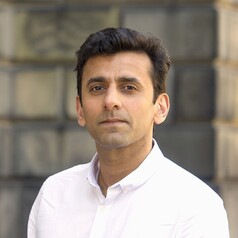
Nasar Meer
Professor in Social and Political Sciences, University of Glasgow
Nasar Meer is Professor of School & Political Science at the University of Glasgow.
He has been co-Investigator of The Impacts of the Pandemic on Ethnic and Racialized Groups in the UK (UKRI, 2021-2023) and Principal Investigator of the Governance and Local Integration of Migrants and Europe's Refugees (GLIMER) (JPI ERA Net / Horizon-2020).
He was a Commissioner on the Royal Society of Edinburgh’s (2020-2021) Post-COVID-19 Futures Inquiry, a Member of the Scottish Government COVID-19 and Ethnicity Expert Reference Group and the British Council's Outreach Program, and formerly elected co-Chair of Young Academy of Scotland (YAS), and elected Trustee of the British Sociological Association (BSA) and the Social Policy Association (SPA).
He is an elected Fellow of the UK Academy of Social Sciences (FAcSS), a Fellow of the Royal Society of Edinburgh (FRSE), and Trustee and Academic Committee Chair of the Stuart Hall Foundation.
He is currently co-Editor of Identities: Global Studies in Culture and Power; co-Editor of 21st Century Standpoints (BSA and Policy Press) and co-Editor of Palgrave Politics of Identity and Citizenship Series (PPICS).
Less ![]()
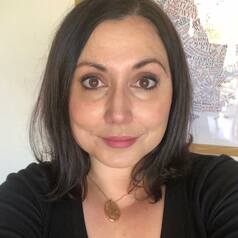
Nassim Jalali
Final year PhD student researching Sylvia Plath's nature poetry, University of Huddersfield
I have a BA Honours in English and MA in Twentieth Century Literature from the University of Leeds. I am currently in my final year of PhD research at the University of Huddersfield. I am researching ecological readings of Sylvia Plath's poetry. I am also a qualified English teacher; I spent 12 years working as Head of Literature at a prestigious sixth form college in Yorkshire. I currently work part time in a high school in London, whilst I complete my doctorate.
Less ![]()
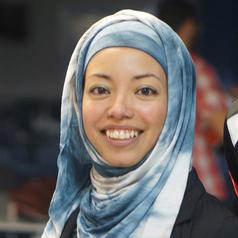
Nasya Bahfen
Senior Lecturer, Department of Media and Communication, La Trobe University
Nasya Bahfen is a senior lecturer in the Department of Media and Communication at La Trobe University. She has taught at Monash University, UNSW, and RMIT and was previously a a radio and online journalist and producer for ABC Radio Australia and SBS. Her freelance writing and commentary includes feature articles and opinion pieces for the Age, Daily Life, the Far Eastern Economic review, and the Brunei Times; and hour-long radio documentaries for ABC Radio National and ABC Grandstand Digital. Nasya has postgraduate qualifications (PhD) in the sociology of the media, and extensive media and communications teaching and research experience. She has a first class honours degree in media from LaTrobe University and an undergraduate degree in journalism from RMIT.
Research Summary
Nasya's doctoral dissertation and research activity reflects the theme of internationalisation and diversity in the media and online, including the media of southeast Asian (Indonesia, Malaysia and Singapore) and Australia.
Teaching
Nasya teaches subjects in the coursework Master of Journalism and supervises higher degree by research students.
Less ![]()
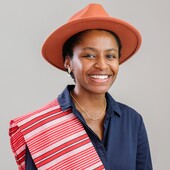

Natalee Garrett
Lecturer in History, The Open University
I was awarded a PhD in Modern History from the University of St Andrews in July 2021, graduating in June 2022. My area of specialism is 18th-century European history, focussing on popular culture and questions of identity (gender, social, national). I was awarded an MA (Hons) in History from Queen's University Belfast in 2016 and a BA (Hons) in English and History from Queen's University Belfast in 2015.
At present, my research is focussed on the British monarchy in the 18th century, and I am currently writing a biography of Queen Charlotte for Routledge's Queens of England monograph series.
Less ![]()
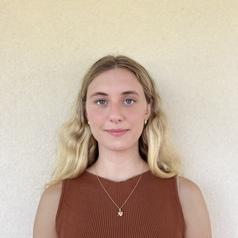
Natalia Gurgacz
Graduate Student, University of Victoria
I completed my Master of Science in Earth and Ocean Sciences at the University of Victoria. During that time I used the UVic ESCM to model the global impact of carbon leaching from marine plastic pollution on different oceanic and atmospheric variables.
I am generally interested in studying plastic pollution and the effects of pollutants on ecosystems and its' processes.
Less ![]()
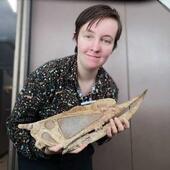

Natalia Jevglevskaja
Research Fellow on the ARC Laureate Project on the data revolution (www.fintechrevn.org), UNSW Sydney
Natalia Jevglevskaja is a Research Fellow at the Faculty of Law and Justice of the University of New South Wales (UNSW Sydney, Australia) and an Associate Fellow of the Higher Education Academy, UK.
In her role as a Research Fellow at the Australian Research Council Laureate Project ‘The Financial Data Revolution: Seizing the Benefits, Controlling the Risks’, she looks at how data and technology are transforming financial services in Australia and abroad and what measures may be required in the area of data and technology governance to facilitate innovation in finance.
Natalia’s broader research and teaching interests include general international law, comparative law, and the law of armed conflict.
Less ![]()

Natalia Kogut
Languages, Cultures, Art History and Music - Research Fellow, University of Birmingham
Natalia Kogut graduated from Taras Shevchenko National University in 2005, PhD in Law was awarded at Institute of State and Law named after V. Korezkiy of NAS (Ukraine). From 2009 till 2012 she was employed on different positions as a lawyer – from leading council to head of legal department of the Research Institute. She was combining legal practise with teaching.
After fleeing the war in Ukraine Dr Natalia Kogut held position of the research fellow in the University of Birmingham at the Department of Modern Languages, Cultures, Art, History and Music.
Sphere of scientific interests of Dr Natalia Kogut include: right to life and health, healthcare systems, ecological law, migrants’ rights, historical memory of migrants. The project with which she is dealing now is a Post Socialist Britain, where research is being conducted in the sphere of migrants and refugees’ welcoming, historical memory of migrants, aspiration and hopes of migrants. Also, Natalia Kogut is a specialist in human rights, right to health, comparative analyse of health care systems in different countries, she published quite a few articles in the sphere in scientific journals.
Less ![]()
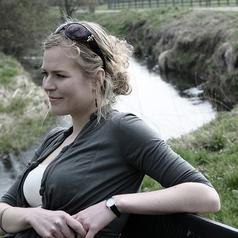
Natalia Kucirkova
Professor of Reading and Children’s Development, The Open University
Natalia Kucirkova researches innovative ways of supporting children’s reading engagement with digital books and the role of personalisation in early years.
Her research takes place collaboratively across academia, commercial and third sectors. She developed an award-winning app ‘Our Story’ for children's story-making and has widely published on early literacy and children’s use of technology.
Natalia is a Fellow of the Royal Society for Arts, Governor for Swallowfield Lower School, Chair of the judging panel for the UKLA Children's Digital Book Awards, Co-Chair of the WG3 COST Action and Advisory Board Member for Save The Children. She has been commended for her engagement with teachers and parents at a national and international level.
Previous roles include:
- Senior Lecturer in Childhood Studies & Early Years, Manchester Metropolitan University
- Lecturer in Developmental Psychology, Open University
-Visiting academic at Massachusetts Institute of Technology, Boston, USA
- Knowledge Transfer Partnership Associate, Booktrust and Open University, UK
-Visiting Pre-doctoral Fellow, Department of Education, Harvard University, USA
Less ![]()
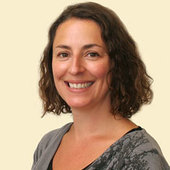

Natalia Letki
Associate professor, University of Warsaw
I have trained as a sociologist, but my research falls at the intersection of sociology, political science and psychology, as I research attitudes and behaviour towards public goods, including tax and pro-environmental behaviour and co-production, as well as policy preferences, discriminatory behaviour, social capital, social trust and corruption. I have an extensive experience in research on ethnic minorities, and party policy and electoral strategy in post-Communist countries. I am particularly interested in the conditioning effect of social and spatial context.
Methodologically, I specialize in quantitative survey research, including survey experiments. I am widely experienced in working with cross-national survey data, including survey design and implementation.
Less ![]()

Natalia López-Hornickel
Postdoctoral researcher, Department of Education, University of Bath
Less ![]()

Natalia Piotrowska
PhD Candidate in International Relations, University of Kent
Natalia Piotrowska is a PhD Candidate in International Relations at the University of Kent. Her research areas include international security, foreign policy analysis and Turkish foreign and security policy (with a special focus on Turkish-Israeli relations). Natalia adopts an interdisciplinary approach to her research, and draws from psychology and sociology in order to further the understanding of domestic and foreign policy of states. In her PhD project, the role of friendship in International Relations is explored through the theoretical prism of ontological security.
Prior to beginning her PhD, Natalia was awarded a Bachelor’s and Master’s degree in Political Sciences (focus: foreign services) from the University of Wroclaw (Poland). During this time, she was also an exchange student at the Yeditepe University in Turkey (2008/2009) and the Belgrade University in Serbia (2010/2011). Natalia was awarded the Scholarship for Academic Achievements by the Institute of Political Sciences at the University of Wroclaw, the Scholarship for Academic Merit by the Polish Minister of Science and Higher Education and the University of Kent 50th Anniversary PhD Scholarship.
Less ![]()
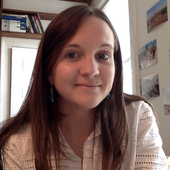
Natalia Przelomska
Research Associate in Archaeogenomics, National Museum of Natural History, Smithsonian Institution
Less ![]()

Natalia Soares Quinete
Assistant Professor of Chemistry, Florida International University
Dr. Natalia Soares Quinete's specialities include: Environmental and Bioanalytical Chemistry, Mass Spectrometry, PFAS analysis, Emerging Contaminants, Metabolites and Biomarkers. Her areas of reserach include: Method development based on mass spectrometry for targeted and non-targeted approaches with applications in environmental (exposomics) and bioanalytical chemistry (lipidomics and metabolomics); Monitoring and assessment of the occurrence, fate and transport of PFAS in environmental and biological samples
Biomonitoring of endocrine disruptor contaminants such as phthalates, hormones, PFAS, PCB metabolites, and other emerging compounds; and Study of biomarkers of exposure to a variety of environmental organic contaminants.
Less ![]()

Natalia Szura
Research Assistant in Psychiatry, Wayne State University
Natalia Szura is a Research Assistant at the Wayne State University Department of Psychiatry. She is based in Detroit, Michigan.
She graduated from the University of Michigan–Ann Arbor in 2022 with a BA in the English and Film, Television, and Media majors, as well as two minors, Writing and German.
During her time as an undergraduate student, she wrote for, and was promoted to Editor for, both the acclaimed
satirical newspaper, The Every Three Weekly, and feminist publication What the F magazine. Natalia has
over 30 written articles published by the former.
Natalia currently collaborates with scientists and doctors for academic and research writing for Wayne State University. Despite this, she holds experience writing for a range of audiences and contexts, including comedic writing, essay writing, persuasive writing, copywriting, blogging, and more.
Less ![]()

Natalia Telepneva
Lecturer in International History, University of Strathclyde
I am a Lecturer In International History at the University of Strathclyde, and specialise in the history of the Soviet Union and the Cold War, especially in Africa. I am the author of "Cold War Liberation: The Soviet Union and the Collapse of Portuguese Empire in Africa, 1961-1975" (UNC Press, 2022), which examines Soviet support for anticolonial movements in Angola, Mozambique and Guinea-Bissau. I have also published several articles on Soviet and Czechoslovak intelligence in Africa and co-edited “Warsaw Pact Intervention in the Third World" (IB Tauris, 2018).
Less ![]()
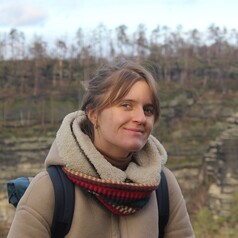
Natalia Zielonka
Postdoctoral Researcher, Biological Sciences, University of East Anglia
PhD in Biological Sciences from the University of East Anglia. Research thesis title: "Biodiversity and ecosystem services in fruit farms: the roles of management and semi-natural habitats.".
MSc in Applied Ecology & Conservation from the University of East Anglia, with a research thesis titled "“Impact of nest predation, landscape and temporal variables on the breeding productivity, and habitat utilisation of lowland Eurasian curlew Numenius arquata in Breckland, UK.”
BSc (Hons) in Zoology from the University of Nottingham, with a research thesis titled "“The acoustic ecology of the European nightjar (Caprimulgus europaeus).”
Less ![]()

Natalia I. Kucirkova
Professor Reading and Early Childhood Development, The Open University
Natalia I. Kucirkova is Professor of Early Childhood Education at The Open University, UK and at the University of Stavanger, Norway. Natalia’s research concerns innovative ways of supporting children’s book reading, digital literacy, and exploring the role of personalisation in the early years. Natalia’s research takes place collaboratively across academia, commercial and third sectors. Her latest book is "Inspirational Women in Academia Supporting Careers and Improving Minority Representation" by Routledge.
Photo: Anne Lise Norheim AYF
Less ![]()


Natalia Lozada Mendieta
Assistant Professor, Department of Art History, Universidad de los Andes
Natalia's areas of interest include the study of pre-Hispanic rock art and ceramics from the Caribbean and Orinoco regions, with an emphasis on archaeometric studies and indigenous technologies. She has also studied the representation of indigenous people in the New Granada region during the early colonial period, using ethnohistorical sources and colonial-era paintings.
Less ![]()
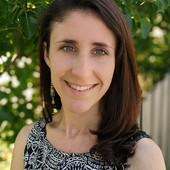
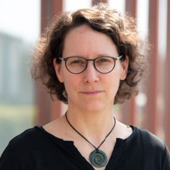
Natalie Barker-Ruchti
Associate Professor of Sport Management and Coaching, Örebro University
Less ![]()

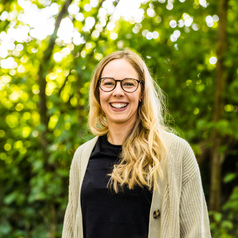
Natalie Brown1
Research officer for the Welsh Institute of Performance Science, Swansea University
Dr Natalie Brown is a research officer for the Welsh Institute of Performance Science, based in the department of Sport and Exercise Sciences at Swansea University.
Natalie has a background working as a physiologist in elite sport, optimising athlete performance. As part of this work she recognised the impact of female specific factors. As a result, Natalie has specialised in research relating to female athletes, focussed on the menstrual cycle and impact on elite performance to participation in physical activity. Her research works closely with Sport Wales and National Governing Bodies across Wales, along with schools to improve menstrual education provision.
Natalie has a particular focus on using her research to create change and translating knowledge into practice.
Less ![]()
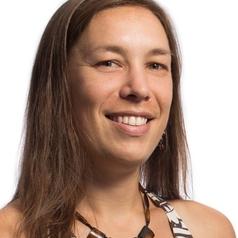
Natalie Bursztyn
Lecturer in Geosciences, University of Montana
I have a passion for finding creative ways to teach and communicate the importance of geology – its application in everyday life, for inspiring students to explore their environment, and for encouraging their natural awe and respect for the Earth. I have a broad range of geologic interests ranging from broad-scale landscape evolution and sustainability to public science communication and wine and terroir. I am passionate about employing creative ways to communicate the importance and value of scientific understanding in everyday life and how critical it is that we as a species embrace sustainable practices now.
My recent research has focused on geoscience education, especially assessing the efficacy of pedagogic tools ranging from analog models of Earth systems to the integration of smart technology and augmented reality in learning experiences. My experience in post-secondary education has been driven by my passion for engaging and educating my diverse student body equally.
Less ![]()
- Market Data





















